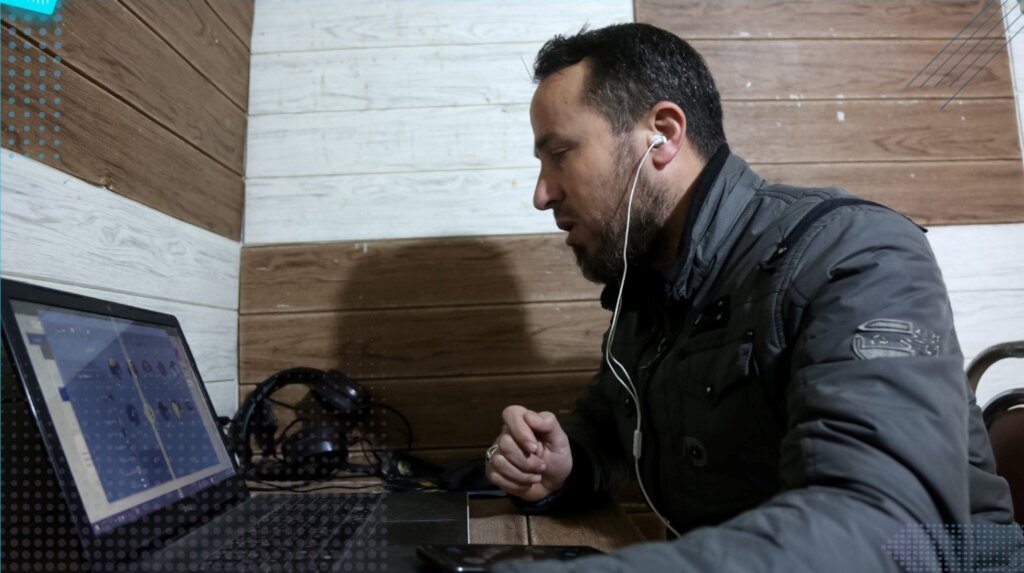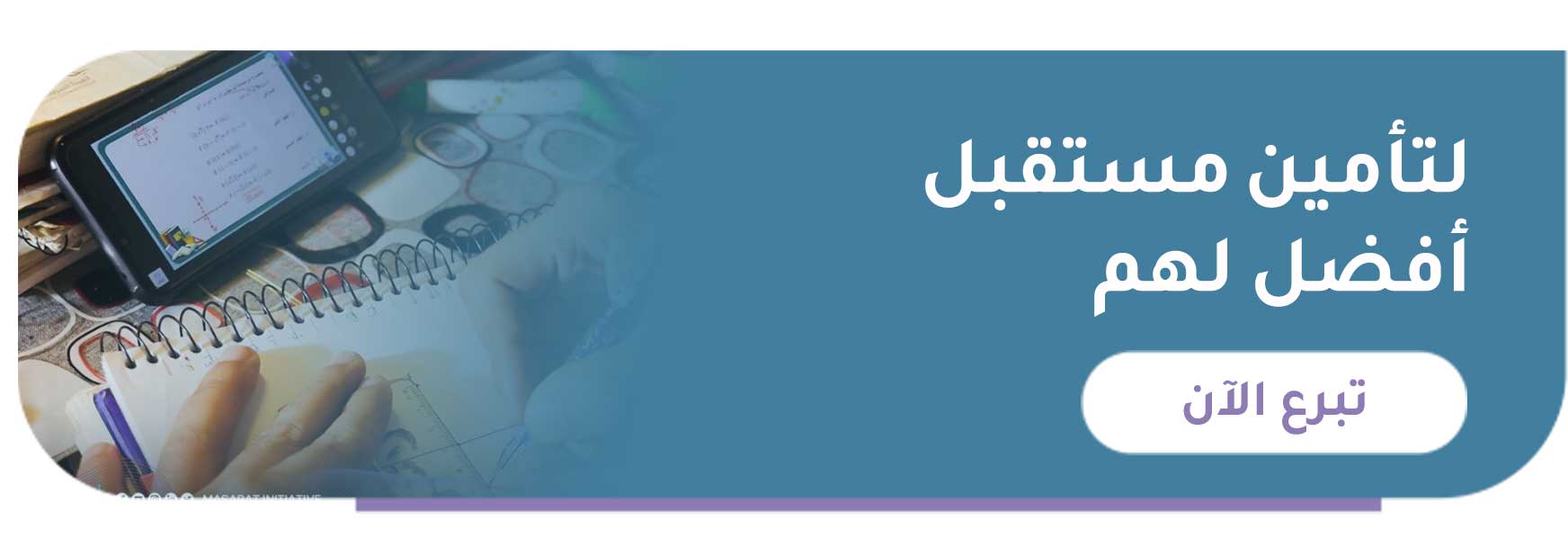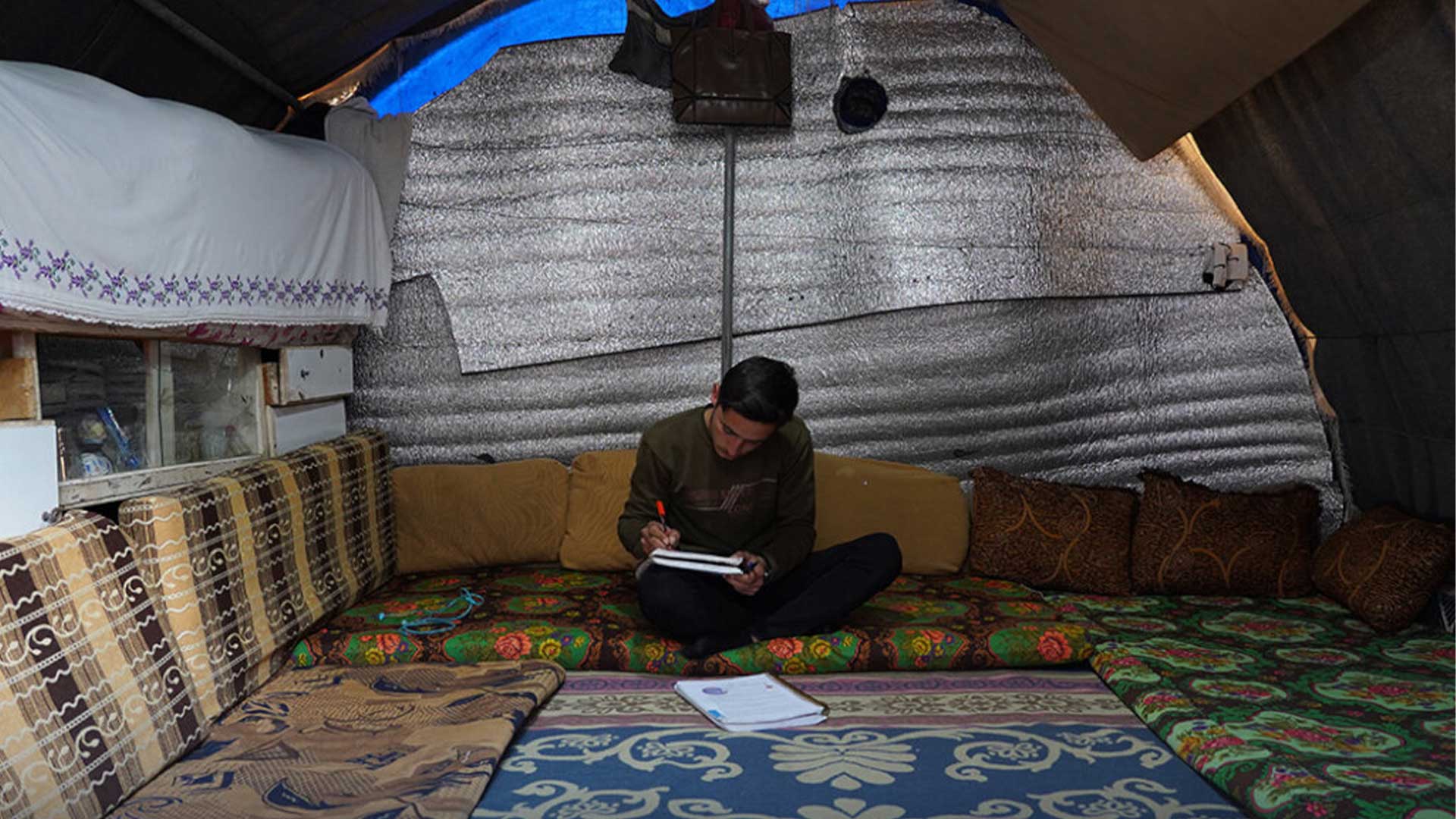In today’s fast-paced world, the competition for jobs is intensifying daily, and it takes more than just a university degree to stay competitive in the professional world. A smart employee must always be learning, as professional personal skills are essential to stand out from others and succeed and continuously develop in any field of work.
Jim Rohn, one of the well-known inspirational speakers, says, “The most successful people in the world are lifelong learners.” Given the constant evolution of the business world, good employees must be aware of the need to learn and develop their skills according to the job market.
In line with our name at the Masarat Initiative, we encourage continuous learning and train our volunteers across all fields. We care for our students through several programs, the most important being student activities, academic advising, and vocational training, which are at the heart of strengthening personal skills, thereby enhancing their scientific and knowledge capabilities to be builders of a prosperous future that enjoys stability and peace.
Now, are you thinking and wondering about professional skills? What are these professional skills that can make you a professional in the job market?
Professional Skills
Professional skills are those skills that are not taught or acquired, and are generally composed of university study requirements and the subsequent acquisition of a master’s degree, diploma, or other, and consist of two main types of skills, soft and hard.
Soft Skills
Soft skills are usually taught and developed autonomously, and they are increasingly valuable to all employers, regardless of type.
Hard Skills
These are not specific to any industry or job, but are supposed to exist in all jobs, and can come naturally or can be enhanced over time.
Important Soft Skills Every Individual Should Possess
There are many soft skills, but we will mention the most important in the job market that make you an ideal employee with an important status in the company or institution:
Communication Skills
Communication skills are the most common and most used in our daily and professional lives. You can use them to give and receive all kinds of information, and they help you understand others. They include four types:
- Verbal: This skill relates to the ability to express thoughts and feelings clearly and directly, which requires choosing the right words and organizing them in a way that makes the message easy to understand.
- Non-verbal (Body Language): Communication through body language, such as head and eye movements and facial expressions.
- Written: This skill is related to the ability to express ideas and information in writing clearly, including correct sentence structure and logical organization of thoughts.
- Visual: Communication through photography, arts, and graphics.
Teamwork Skills
These are a set of abilities and skills that help individuals interact and cooperate effectively within a work team and are essential for achieving goals and ensuring harmonious team performance. They are divided into:
- Good communication: Clearly expressing ideas and understanding the ideas of others, and using communication tools effectively.
- Collaboration: The ability to work in the spirit of the team, offer help to others, and motivate positive interaction.
- Appreciating diversity: Understanding the value and importance of diversity in the team and being able to benefit from the skills and experiences of different individuals.
- Solving group problems: The ability to cooperate in solving problems and making collective decisions effectively.
- Goal orientation: Setting and identifying common team goals and ensuring that efforts are directed towards achieving them.
- Conflict management: The ability to deal with conflicts constructively and look for solutions that meet everyone’s needs.
- Relying on others: Enhancing trust among team members and achieving positive communication.
- Motivating achievement: Inspiring individuals to succeed and motivating them to perform at their best.
Time Management
Time management is the process of organizing, planning, and dividing your time between multiple activities. If you work smart, you will accomplish more work with high efficiency in less time, even when time is tight and pressures are high.
Time management skills are very important in any job because they help you organize your work in a way that allows you to achieve goals. If you have a specific time allocated to complete your tasks, you can also have additional time to think about success for yourself and your organization.
Important steps in time management include:
- Prioritizing
- Setting goals
- Creating a timetable (“planning”)
- Delegating tasks
- Avoiding distractions
- Reviewing and evaluating
Problem-Solving Skills
Problem-solving skills help you:
- Identify the source of the problem and find appropriate solutions, which will lead to the development of your professional skills.
- Companies rely on people who can assess both types of situations and identify solutions calmly.
- Employers appreciate problem-solving skills in any job.
- They are very useful in other areas of life such as building relationships and making daily decisions.
- They are essential for achieving success in various aspects of life, whether at work or personally.
Among the essential skills for problem-solving are:
- Critical analysis: The ability to analyze situations and break them down into manageable elements.
- Problem identification: The ability to clearly identify the main aspects of the problem.
- Idea generation: Using creative thinking to generate a variety of ideas to solve the problem.
- Evaluating solutions: The ability to evaluate and examine proposed solutions.
- Collaboration and communication: Working with others and functioning as a team to reach joint solutions.
- Decision-making: Making the right decision based on the analysis of available information.
- Implementation: Developing a good action plan to implement the chosen solution.
- Monitoring and evaluation: Tracking the progress of implementing the solution and checking for improvements.
Creativity
Creative thinking means your ability to use imagination to generate new ideas or the ability to think about a task or problem in a different way “outside the box”.
Creative thinkers look at things from a unique perspective not visible to others, and they can find patterns and make connections to find opportunities in complex systems.
If you are a creative thinker, it will help you solve complex problems or find interesting ways to deal with the tasks assigned to you. This includes:
- Innovative thinking: The ability to generate new and unconventional ideas.
- Flexibility: The ability to adapt to changes and challenges strongly.
- Expanding horizons: Exploring ideas from various fields and cultures.
- Creative analysis: The ability to analyze situations and problems creatively.
- Developing technical skills: Improving and developing personal skills in a specific field, whether artistic or technical, and regularly exploring and developing new skills.
- Creative expression: The ability to express ideas and feelings through innovative means, whether in writing, art, or public speaking.
- Creative leadership: Motivating teams and directing them towards achieving goals through creativity.
- Creative problem-solving: Looking for unconventional solutions to challenges and problems, thinking, and using innovative methods.
Leadership Skills
Leadership skills are those skills we often use when organizing other people to achieve a common goal or complete a task. It doesn’t matter if you are in a managerial position or leading a project; leadership skills require you to motivate others to complete a series of tasks before a deadline. Leadership is a combination of several skills working together.
Examples of leadership skills include:
- Decision-making: The ability to make tough decisions in a timely manner.
- Vision: The ability to set a future vision and identify the main goal.
- Patience: The ability to remain calm and patient in the face of challenges without losing focus.
- Empathy: The ability to understand others’ feelings and interact with them sensitively, sharing in their experiences.
- Attentive listening: The ability to fully understand and absorb messages through careful listening and providing responses that show understanding.
- Credibility: Demonstrating integrity and purity in dealing with others, and committing to the given word.
- Creativity: The ability to think outside the box and generate new ideas and innovative solutions.
- Positivity: Maintaining a positive mindset and motivating others through optimism and encouragement.
- Appropriate responses: The ability to respond appropriately to situations and challenges without losing calm or control.
- Timely communication: The ability to guide messages and communicate effectively at the right moment.
- Team building: The ability to guide and motivate individuals towards collaborative work and develop an environment that encourages cooperation.
- Flexibility: The ability to adapt to changes and handle unexpected situations smoothly.
- Risk-taking: The boldness to take risks that help achieve innovative goals and effect change.
- Inspiration and motivation: The ability to inspire the team and motivate them to perform at a high level.
- Negotiation and conflict management: The ability to negotiate effectively to achieve understanding and consensus and advocate for solutions.
Organizational Skills
Organizational skills are the abilities that allow you to use your resources efficiently and effectively in various tasks. Being organized means you can manage your time, energy, and workspace well, and you are also able to complete all your tasks successfully. Organizational skills can take different forms depending on the workplace and specific job title.
However, organizational skills typically include maintaining an organized workspace, meeting deadlines, and communicating well with your team.
Analytical Skills
Analytical skills are the abilities that allow you to collect, organize, visualize, and analyze information accurately. Analytical skills enable you to see patterns, draw conclusions, and find solutions, thereby increasing your productivity and your organization’s performance.
The importance of possessing personal skills to achieve excellence in your career is clear, regardless of your job field. These skills play a significant role in building your personal and professional success. The strength of career success is not only dependent on academic skills and knowledge specific to your field of work but also largely relies on developing and enhancing your personal skills, and investing time and effort to develop these skills, which greatly contributes to building a strong and sustainable professional future.
The above were the soft skills needed by any employee in their workplace, and we strive at the Masarat Initiative to spread knowledge remotely to ensure they are present in all our volunteers to develop their capabilities and achieve the highest efficiency.
Stay tuned for the second part to introduce you to the hard personal skills related to technical and specialized skills that can be learned and developed specifically.
Author: Fouad Al-Dik – Director of Human Resources and Logistics at Masarat Initiative









